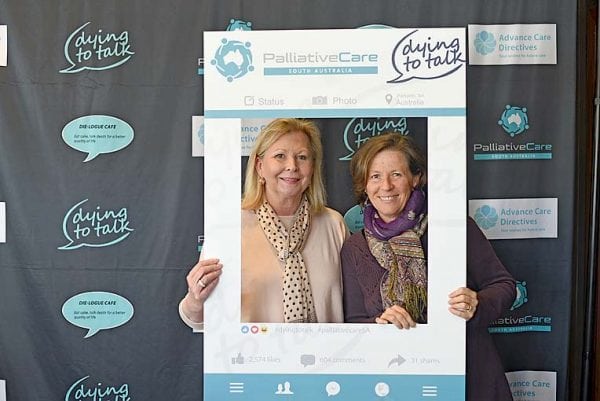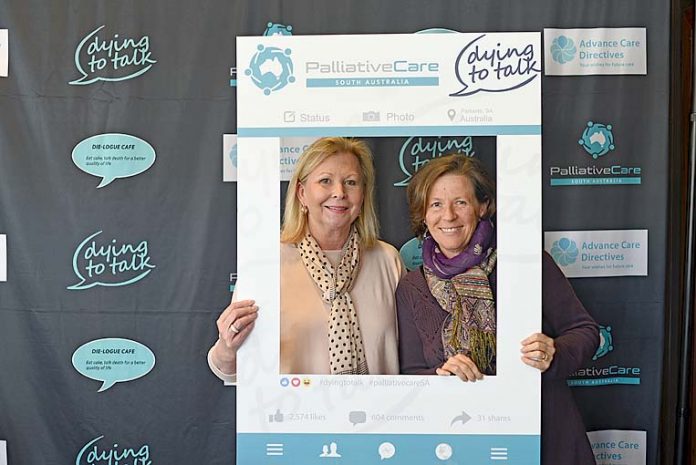
“TALKING about death won’t kill you and it won’t hurry the process along,” Helen Roberts, a death midwife, said during a frank and fearless discussion with open-minded Mount Gambier residents.
Ms Roberts facilitated the Dying to Talk program, a Palliative Care SA initiative which encourages Australians of all ages to talk about the one truly universal human experience – dying.
Around fifteen community members attended the free event to learn more about palliative care and discuss topics ranging from natural burial to the physical symptoms of death.
“The program is about making death a social topic, rather than something you just never talk about and leave to the end,” Ms Roberts said.
“Nothing is out of bounds during these discussions – death phobia is a common barrier to dying well and we aim to dispel personal fears and encourage people to prepare and plan for death.
“Death is sad and hard but there needs to be a cultural shift so people feel comfortable planning ahead and discussing death openly.”
With a background in paediatrics, Ms Roberts said she was experienced in end-of-life matters.
“I worked in paediatric intensive care for 26 years and I saw many children die,” she said.
“Outside of my role with Palliative Care SA I’m an end-of-life guide or I call myself a death midwife – there is no medical component, I support people as they die.
“As a midwife brings someone into the world I help them on their way out, advising them on what to expect, helping them plan for what happens after their death and sometimes just listening and holding their hand. ”
One attendee conceded that although she worked locally in palliative care, she was yet to write her own advance care plan.
“I feel there is no sense of urgency because I don’t plan on dying anytime soon,” she said.
“I have so many of these forms all over my house, but there is so much I want to include it becomes overwhelming and I don’t know where to start.”
At 90 years old, another attendee laughed that he was a “potential customer” for palliative care.
“It seems to me there is a change in elderly people who think they are at the end of their run and are no longer disturbed about dying,” he said.
“I’ve had a good life and thoroughly enjoyed it, I’ve achieved quite a bit and when the time comes I’m ready to shut up shop, if you like.
While he conceded he was “no expert” he said he believed many elderly people were more pragmatic.
“I live on a retirement estate and there is actually a lot of negativity about the future,” another participant added.
“If you talk about something coming up in three months sometimes people don’t want to hear about it because they think they might not be here.”
Ms Roberts said most people were sheltered from the reality of death.
“During Victorian times extended families were in the house for several days after a death, the body was there in an open casket and they had more time to process,” she said.
“Death was a part of life rather than separate from life.
“When we invented hospitals we pushed death back into the hospitals and it became separate and now we are sheltered from it.”
She said there was no need for death to be a taboo topic of conversation.
“If you look at how we talk about death we always say, ‘they passed’ or ‘I lost my mum,’ rather than ‘they died’ or ‘my mum is dead,'” Ms Roberts said.
“Talking about end-of-life care and death itself is important for everyone – planning for death will give you peace of mind and it will allow your family to grieve instead of stress over post-death arrangements.
“I’m hoping there is a ripple effect where people who attend these sessions go home or back to the office and start the conversation.”








